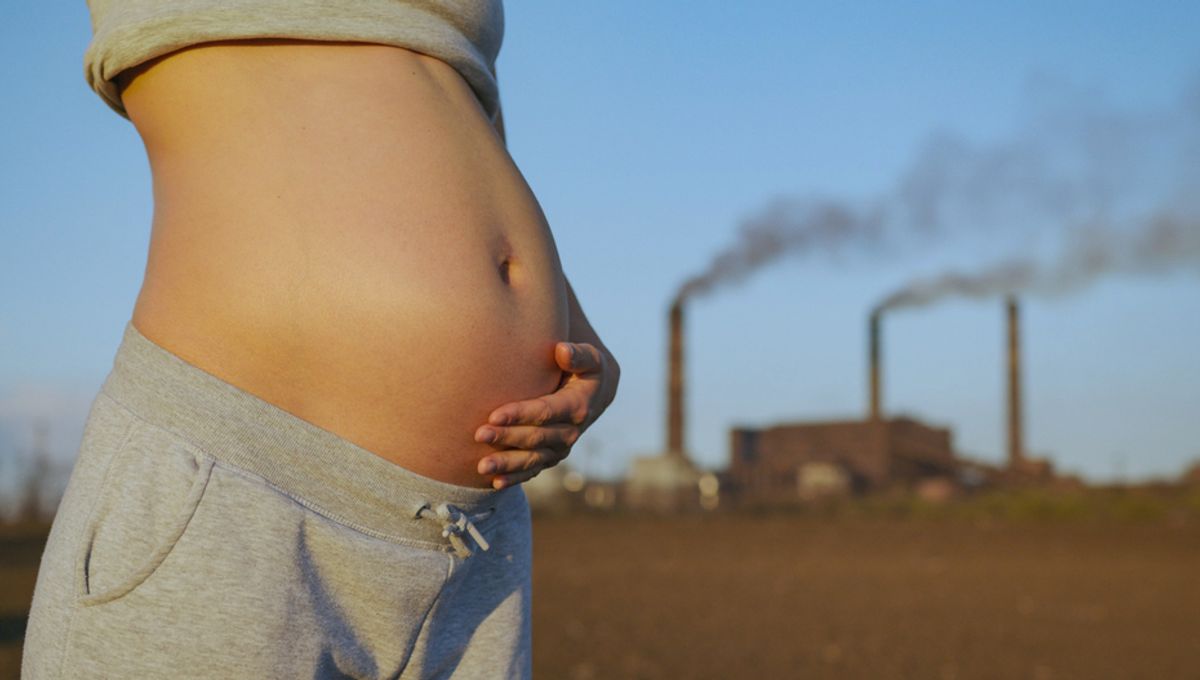
Pregnant people exposed to certain air pollutants are significantly more likely to give birth to lighter babies, a new study has found. The pollutants are PM2.5 and PM10 (terms referring to the miniature, incredibly inhalable size of the particles) and nitrogen dioxide (NO2) – and the higher the levels of pollution, the stronger the link.
One time in your life that you really don’t want to be slender is right at the beginning. A low birth weight, defined as being born weighing less than 2.5 kilograms (5 pounds, 8 ounces), increases the risk of a whole range of scary-sounding problems – from jaundice and infections all the way up to bleeding in the brain, breathing problems, and death.
Ideally, then, pregnant people would want to avoid raising their risk of a low-weight baby. With some risk factors, that’s fairly straightforward: it’s one of the reasons doctors advise against drinking alcohol and smoking in pregnancy, and why certain medications often need to be stopped, reduced, or switched while the fetus continues to develop.
Other risk factors, though, are basically impossible to avoid. You can’t just make yourself older or younger, for example, even though age is known to be linked to low birth weight; neither can you change race to avoid the health discrimination that makes many people’s experiences more dangerous in so many ways.
A new study published today has found another risk factor that’s particularly difficult to avoid: breathing.
At least, that is, breathing in areas with high air pollution levels. The study – part of the ongoing Maternal and Developmental Risks from Environmental and Social Stressors, or MADRES, project – looked at data from pregnant women from low-income populations of Los Angeles, where ambient air pollution is nigh-inescapable.
“In the predominately low-income Hispanic population that comprises the MADRES cohort, we observed robust associations of lower birth weight with NO2, PM2.5, and PM10 exposures in the window from early pregnancy to midpregnancy,” the paper confirms. “The inverse associations were generally stronger, and the sensitive windows were generally wider within subgroups with either high individual-level perceived stress, high neighborhood-level cumulative burden, or both.”
The study joins a growing body of evidence linking air pollution to adverse birth outcomes: only this month, another research group found evidence of soot particles inside fetal circulatory systems as early as the first trimester. Like them, the team behind today’s result found the effect even in early pregnancy – which makes sense, they explain, since “early pregnancy to midpregnancy is the critical period of organogenesis and functional initiation that lays the foundations for fetal growth, such as the beginning of hematopoiesis, brown fat formation, and thyroid hormone secretion.”
“Therefore, exposure to air pollution during early pregnancy could affect fetal and placental development and eventually lead to lower birth weight, particularly for mothers with high psychosocial stress,” they write.
“Both individual- and neighborhood-level stressors might act on some known biological pathways that are also involved in responses to air pollution exposures, including heightened oxidative stress and systemic inflammation, hormonal interruption, and reduced placental function.”
Of course, statistics being what it is, the researchers stop short of claiming that air pollution exposure causes low birth weight directly. However, the link is significant enough that they advise protecting pregnant people from air pollution as much as possible.
“The population with both high individual-level psychosocial stress and high neighborhood-level cumulative burden faced the greatest susceptibility and the widest sensitive window of air pollution exposure in association with birth weight, suggesting that individual-level and neighborhood-level stressors may compound one another,” the authors conclude. “Nevertheless, further studies are needed to elucidate the mechanisms of the joint effects of individual and neighborhood stressors on the association between air pollution and reduced fetal growth.”
The study was published in the journal JAMA Network Open.
Source Link: Air Pollution Linked To Low Birth Weight